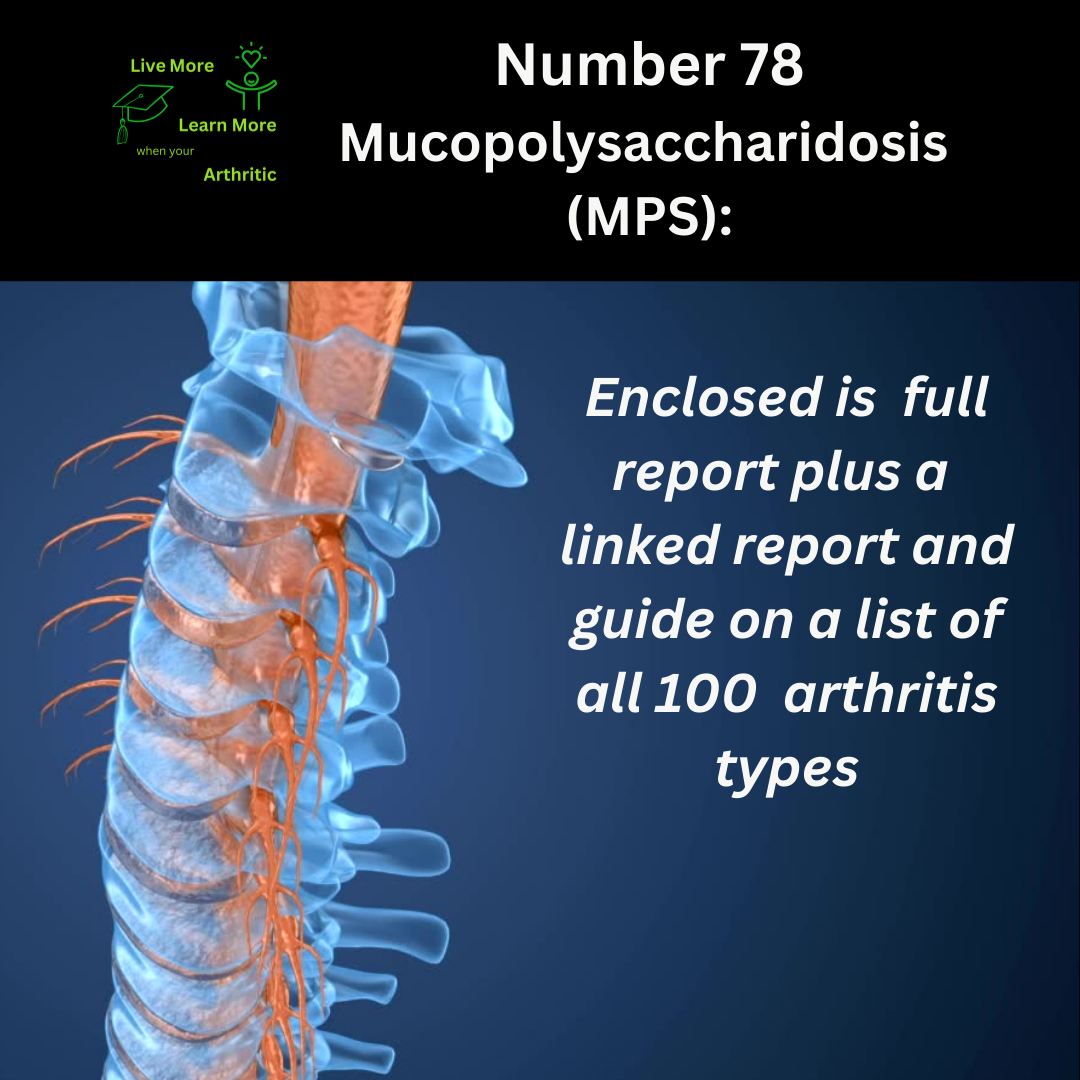
Mucopolysaccharidosis (MPS): Number 78 on the list of 100 types of Arthritis
Mucopolysaccharidosis (MPS) is a rare genetic disorder that affects the body’s ability to break down complex sugars called glycosaminoglycans (GAGs). Living with MPS can be challenging, but understanding the disease and adopting a proactive approach can significantly improve quality of life.
 Description of Mucopolysaccharidosis (MPS)
Description of Mucopolysaccharidosis (MPS)
MPS belongs to a group of metabolic disorders characterized by the accumulation of GAGs in cells and tissues throughout the body. This buildup results from the deficiency of specific enzymes responsible for breaking down GAGs. Over time, the stored GAGs cause damage to organs, tissues, and bones.
Causes and Triggers
MPS is caused by genetic mutations that result in deficiencies of enzymes needed to break down GAGs. These mutations are usually inherited from both parents. Triggers for disease progression are not well understood but can include infections and other stressors that place additional strain on affected organs.
Symptoms and Impact on Mobility
Common symptoms of MPS include skeletal deformities, joint stiffness, organ enlargement, heart and respiratory problems, vision and hearing loss, and cognitive impairment. The limited range of motion due to joint stiffness can significantly affect mobility and daily activities.
Age of Onset and Lifespan Expectancy
The age of onset and severity of MPS can vary depending on the specific type of MPS. Some forms of MPS present in early childhood, while others may not manifest until later in life. Unfortunately, MPS is a progressive disorder that can shorten lifespan due to organ complications and associated health issues.
Can You Achieve a Higher Quality of Life?
Despite the challenges posed by MPS, individuals can enhance their quality of life with a proactive approach. This includes early diagnosis, regular monitoring by healthcare professionals, physical therapy to improve mobility and prevent joint contractures, and adaptive devices or surgeries to address skeletal deformities.
Possible Complications
Complications of MPS can involve cardiovascular problems, respiratory issues (such as obstructive sleep apnea), skeletal abnormalities, and neurological deterioration. Regular medical care and timely interventions are essential to manage these complications and improve overall well-being.
While there are no specific natural breakthroughs for treating MPS, maintaining a healthy lifestyle with a balanced diet, regular exercise within physical limits, and managing stress effectively can support overall health and potentially mitigate some symptoms.
Demographic Patterns
MPS affects both genders equally and can occur in individuals of any ethnicity. The prevalence of specific types of MPS may vary among different populations.
Interconnected Diseases and Conditions
MPS can lead to secondary health issues such as arthritis, cardiovascular disease, respiratory complications, and cognitive decline. Awareness of these interconnected conditions is crucial for comprehensive medical management and treatment planning.
In conclusion, living with Mucopolysaccharidosis requires a multidisciplinary approach involving medical professionals, caregivers, and individuals affected by the disease. By understanding the disease’s nature, addressing complications proactively, and embracing a healthy lifestyle, individuals with MPS can optimize their quality of life and navigate challenges with resilience and determination.


